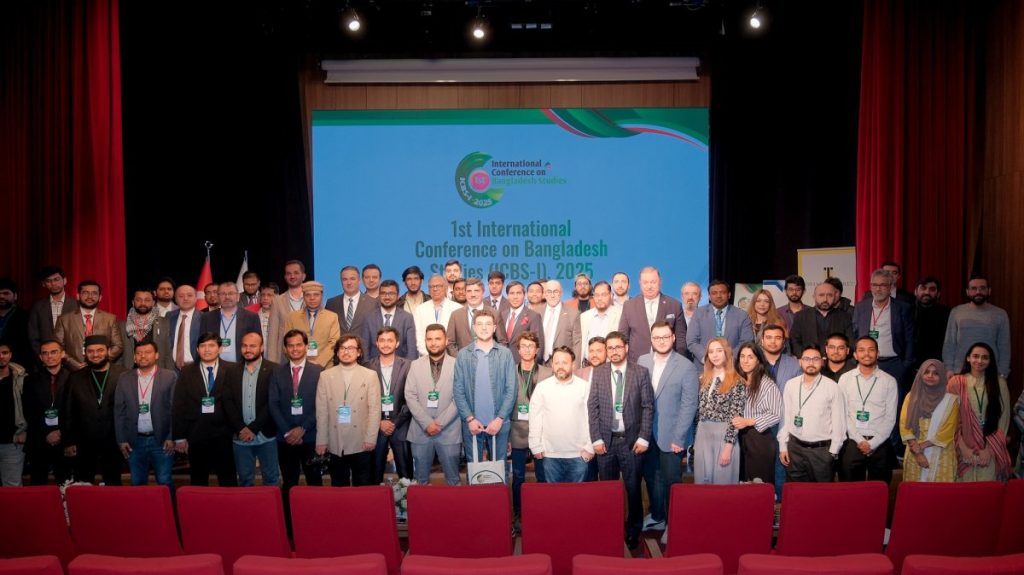The first International Conference on Bangladesh Studies (ICBS-I) opened on April 19 at Istanbul Ticaret University, bringing together more than 125 scholars, diplomats and policymakers to examine the socio-political transformation of post-revolutionary Bangladesh.
Organized by the Center for Policy and Social Research (CPSR), the three-day event is held under the theme “Building Bangladesh 2.0 in the Spirit of the July Revolution.” Participants from around the world are exploring topics including national governance, institutional reforms, freedom of expression, and pathways toward democratic development in Bangladesh.
The conference’s opening ceremony featured keynote speeches underscoring Bangladesh’s recent political shift and growing international ties, particularly with Türkiye.
Prof. Yasin Aktay, sociologist and former advisor to President Recep Tayyip Erdoğan, delivered the opening keynote. He described Bangladesh’s 2024 July Revolution as a grassroots movement and warned of potential foreign efforts to undermine it.
“Bangladesh’s revolution belongs to its people,” Aktay said. “It is vital they remain vigilant against counter-revolutionary forces. As a close friend, Türkiye will always stand beside the people of Bangladesh in defending this transformation.”
Dr. Mahmudur Rahman, editor of the Daily Amar Desh, offered a politically charged interpretation, calling the revolution a stand against regional dominance and a bid to reclaim sovereignty. “This revolution was not just a protest,” Rahman said. “It was a declaration of independence from subservience.”
Other speakers included Turkish lawmaker Doğan Bekin and Bangladeshi Ambassador to Türkiye M. Amanul Haq. Both emphasized strengthening bilateral relations.
Haq noted increasing collaboration in defense, trade, education and technology since the revolution. He also referenced historic trade links between the Ottoman Empire and Bengal dating back to the 16th century.
Prof. Necip Şimşek, rector of Istanbul Ticaret University, formally inaugurated the conference and welcomed international participants. The university previously honored Nobel Peace Prize laureate Muhammad Yunus and is hosting discussions on governance, justice, and democratic reform.
The event also featured officials such as former Turkish Minister of Urban Development Mehmet Kaplan, and vice-chancellors from Bangladeshi universities. A major announcement included the upcoming launch of Bangladesh Studies, a peer-reviewed journal focused on the country’s political, cultural and economic landscape.


